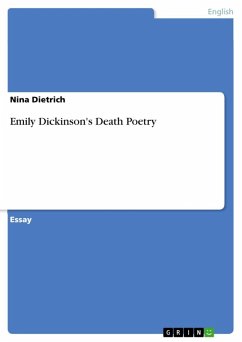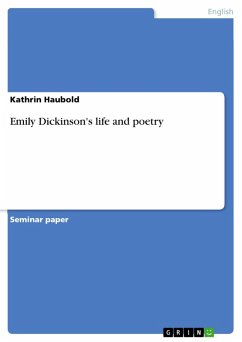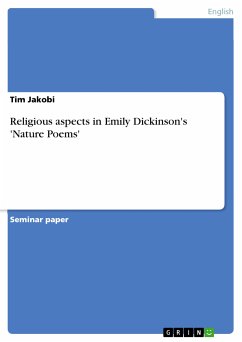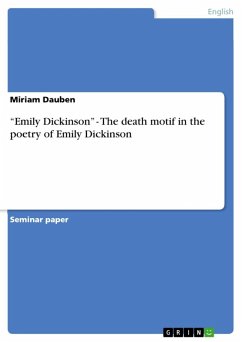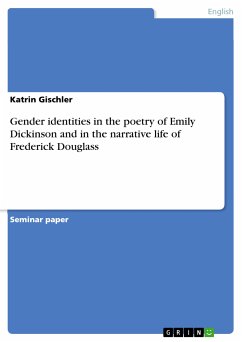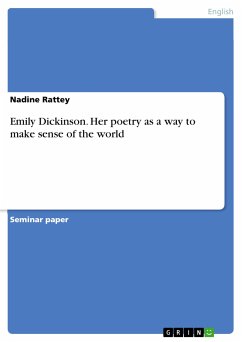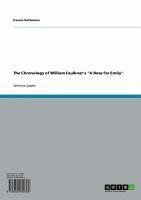Essay from the year 2002 in the subject American Studies - Literature, grade: 1.0 (A), University of Kent (School of English), course: Nineteenth-Century American Literature, language: English, abstract: After the first two volumes of Emily Dickinson's poems appeared posthumously in 1890 and 1891, there were many negative reviews of her work, such as, If Miss Dickinson's disjecta membra are poems, then Shakespeare's prolonged imposition should be exposed without further loss of time ... Miss Dickinson's versicles have a queerness and a quaintness that have stirred a momentary curiosity in emotional bosoms. Oblivion lingers in the immediate neighbourhood.1 Today, however, Dickinson's poetry is widely regarded as a milestone in American literature. Dickinson has become a classic, famous for her vivid, powerful imagery and innovative style. In fact, some critics consider her 'the finest American woman poet'2 and claim that '[h]er accomplishment is so radically original that the entire model of what poetry can know (and write) changes when her work is taken into account.'3 There is an extensive range of criticism on Emily Dickinson's poetry, many of which focuses on her treatment of five dominant themes, that is, life, death, immortality, love and nature. Dickinson's early editors as well as critics including Ruth Flanders McNaughton group the poems in these categories. According to Henry W. Wells, about one quarter of Dickinson's poems deals chiefly with the theme of death. 4 This part of Emily Dickinson's poetry will be in the centre of this essay. The essay will, first of all, explain why the theme is so important for the poet. Why does Dickinson appear to be preoccupied with death? Is it natural for her to make death one of her central topics? 1 Anonymous, 'The New Pastoral Poetry,' The Atlantic Monthly, 69, January 1892, p.144, quoted in Ruth Flanders McNaughton, The Imagery of Emily Dickinson, Norwood Editions, 1970, p. vii 2 David Porter, Dickinson: The Modern Idiom, Harvard University Press, 1981, p.1, quoted in Helen McNeil, Emily Dickinson, Virago Press, 1986, p.1 3 Helen McNeil, Emily Dickinson, Virago Press, 1986, p.1 4 Henry W. Wells, Introduction to Emily Dickinson, Hendricks House, 1958, p. 94
Dieser Download kann aus rechtlichen Gründen nur mit Rechnungsadresse in A, B, BG, CY, CZ, D, DK, EW, E, FIN, F, GR, HR, H, IRL, I, LT, L, LR, M, NL, PL, P, R, S, SLO, SK ausgeliefert werden.

